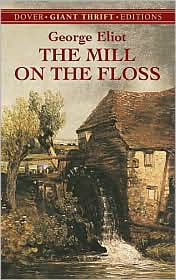I had to create a list on today's topic, mostly because I find it nearly impossible to name ten favorite characters, but I am going to do my best to create a list.
Off I go (and these are in no particular order because the only thing harder than narrowing this down to ten is picking an actual favorite).
- Severus Snape from Harry Potter by J.K. Rowling: I have loved Snape since the first time he came on the page in Sorcerer's Stone. I was always intrigued by his back story and why he was just so darn mean to poor Harry. And I loved how Rowling slowly developed him. I think, of all the characters in her world, that he was the best.
- Lily Bart from The House of Mirth by Edith Wharton: I love Lily so much that I named a kitten after her. There is something so weak and naive about Lily to start, but as you get to know her, she acquires such a sense of strength and purpose...and I just admire that in any female character.
- Vardaman from As I Lay Dying by William Faulkner: I love Vardaman. And I love how he struggles to cope with the death of his mother throughout the book. I couldn't imagine being that young and losing your mother. He also has one of the best chapters I've ever read, "My mother is a fish." Read this.
- Lucy Snowe from Villette by Charlotte Bronte: I see a lot of myself in Lucy Snowe, which is probably why I loved the book so much as I read it. She is shy and reserved, but knows when she must speak out. I loved her quiet nature, and the way she kept secrets from everyone, even the reader!
- John Proctor from The Crucible by Arthur Miller: I just reread the play with my sophomore English classes, and once again, I was blown away by the power of Miller's play. I love John Proctor and his emotional outbursts-the way he chooses to passionately defend his honor and reputation. It gets me every time. (honorable mentions to Reverend Hale and Giles Corey)
- Ender Wiggin from Ender's Game by Orson Scott Card: I am currently reading this one with my elective English class and while they are not as big of fans of Ender as I am, they still find him interesting. I always feel bad for poor Ender-born as a request of the government, forced to give up his childhood, and later called a monster. I love his development, the way he thinks, and who he chooses to become by the very end.
- Telemachus from The Odyssey by Homer: While I like Odysseus just fine, I really like the story of Telemachus and his journey to becoming a man. There is something so honest and interesting about his interactions with Athena and the other kings as he struggles to determine who he is in his father's shadow.
- Silas Marner from Silas Marner by George Eliot: I love the transformation Silas undergoes once he is responsible for someone other than himself. He is no longer allowed to be a cranky old hermit, obsessed with his money and isolation. Really, I just want to give him a big hug and tell him he's wonderful for taking in a little girl.
- Moby Dick from Moby-Dick by Herman Melville: I spent a lot of time with that big white whale last fall, and I really came to like the whale as a character, even though you don't meet him for a long time. There is something to be said about a large whale driving a man to the brink of insanity that makes you have to respect that whale. And I do.
- Isabel Archer from The Portrait of a Lady by Henry James: One of the best books I read in 2011, I just loved Isabel Archer. She was bright, vivacious, and a little bit saucy-just what I like in my heroines. But she was also vulnerable and naive, and her eventual decisions broke my heart. I don't think I'll ever forget her!
There you have it! Ten of my favorite literary characters of all time, and I didn't even get to mention Tom Sawyer, Hermoine Granger, Mr. Darcy, or any of the others I consider to be superb. Let me know who you picked!















